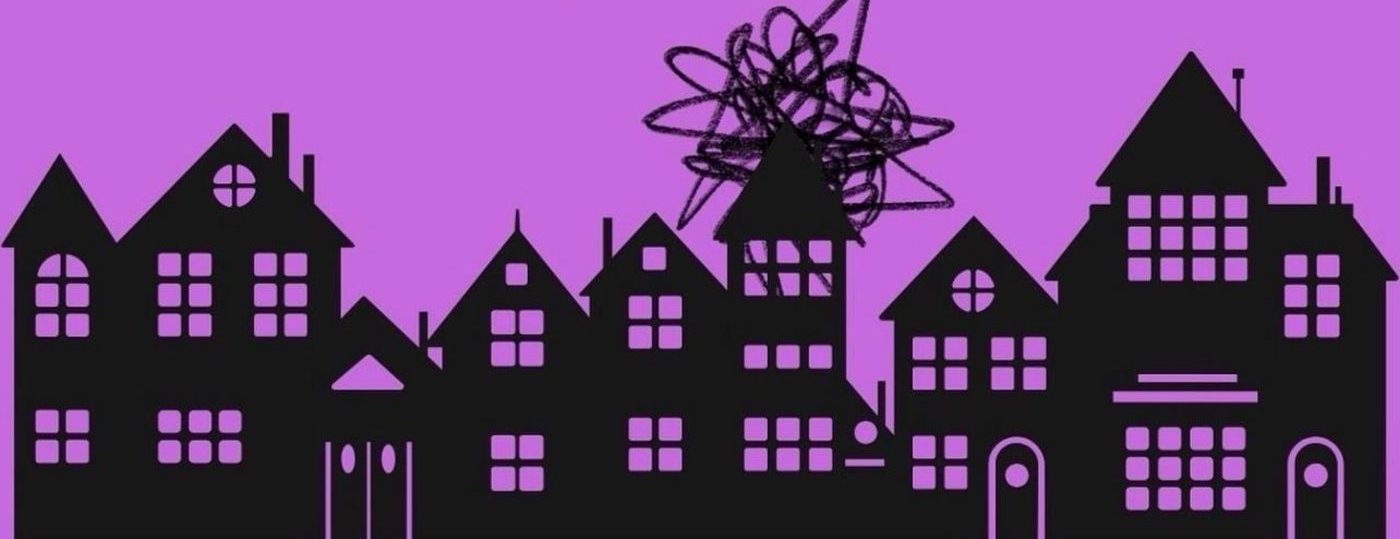You’ll Never Walk Alone: Review of MTW’s Next to Normal
For a show featuring a bleak story, coupled with an indie rock score, Next to Normal sounds like it would be a tough sell. However, it has shown, over the years, it’s staying power. Brian Yorkey’s 2008 family drama musical has hopped from off-Broadway, to tours, to West End runs, to a major cult following. It’s 2009 cast recording outlasted the show itself, becoming a modern staple, in the same vein as The Last Five Years and Come From Away. Now, Musical Theatre Warwick has given their take. Though presented in the small, intimate Avon drama studio, this production of Next to Normal strikes at that same continued relevancy.
The family around her…revolve[s] uneasily around their mother, trying to fit their dreams and desires into a world that’s slowly being swallowed up by a devastating past. Next to Normal works wonders within this dramatic tension
The musical follows Diana (Kate Campbell), whose bipolar disorder is on the verge of derailing her already unstable life. The family around her, her husband Dan (George Jasper), daughter Natalie (Sophie Hedley) and son Gabe (James Maclean), revolve uneasily around their mother, trying to fit their dreams and desires into a world that’s slowly being swallowed up by a devastating past. Next to Normal works wonders within this dramatic tension. Diana sways from blissful irony, to deep depression, to grief filled anger. Campbell centres this production well, tackling an incredibly challenging leading role and bringing the core aspects of Diana to the forefront. Hedley and Jasper find new possibilities within their supporting characters. Past performances have seen Dan and Natalie overshadowed by Diana. This production dodges this, where Hedley and Jasper’s performances make their characters’ stories individually moving and engaging. They desperately try to pull Diana away from the very person she can never let go of. Revealed halfway through Act One, teenage Gabe is Diana’s break with reality, demonstrated by her holding on to her dead baby grown up.
Strong and May deliver some of the most powerful vocals in the show. The Doctors and Henry start off as seemingly small side characters, then are revealed to be the binary ends of this family’s fate; a cold, clinical reality on one side, a blissful yet striving hope on the other
Directors Toby Hancock and Lucas Grant elevate this story to an enthralling, economical theatrical space. Nothing is wasted in their direction. Each tableau, from the first song onwards, comes back in the show. Close details, like the many boxes the family brings out, builds up a visual harmony that sustains the story’s falls and rises. Atmospheric lightning, expressing all the emotional throws and twists, gets the audience on the show’s time. For Next to Normal needs an audience to be drawn in, given that it’s truth, that old sorrows never really go away, is a hard one to reckon with. Some moments (Diana’s confession “I love you as much as I can”) are unbearable. Apart from the family, the three supporting characters of Henry (Max Strong) and Dr Fine/Madden (Glenn May), balance the show’s intense familial focus. Strong and May deliver some of the most powerful vocals in the show. The Doctors and Henry start off as seemingly small side characters, then are revealed to be the binary ends of this family’s fate; a cold, clinical reality on one side, a blissful yet striving hope on the other. Yorkey’s score brings all these fires to an inferno, and the band superbly relates the musical’s eclectic rock sound to Avon’s small space.
They all find their faith in love, deep within their broken selves, to face their dead at last. Throughout the play, and certainly by the end, most of the opening night audience was in coughed up tears
In his review of the original Broadway production, critic Ben Brantley called this show “a feel-everything musical”. MTW’s Next to Normal follows this mark: blood pools on a table, bottles of pills are shaken in the audience’s face, and full use of the actors’ talents and the space around them all create a memorable version. It’s a deep family play. A long day’s journey into the unknown, in which the four haunted Goodmans will eventually fold up in. All of them, in some ways striving for and failing at the task of loving each other. In the end, these hard, clean truths start to gleam through the cracks. Natalie’s lyric “When I thought you might be dying / I cried for all we’ll never be” is a fatal revelation, and yet her and Diana sing on. They all find their faith in love, deep within their broken selves, to face their dead at last. Throughout the play, and certainly by the end, most of the opening night audience was in coughed up tears. And as this grief-filled family looked forward to tomorrow, I was reminded of another American musical classic “You’ll Never Walk Alone.”

Comments